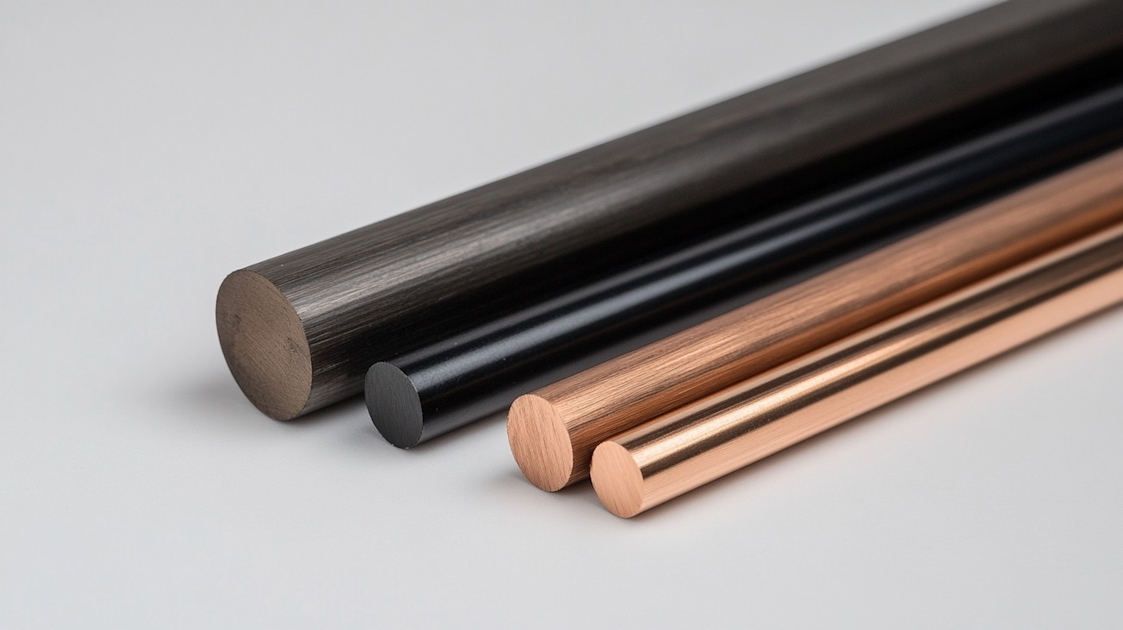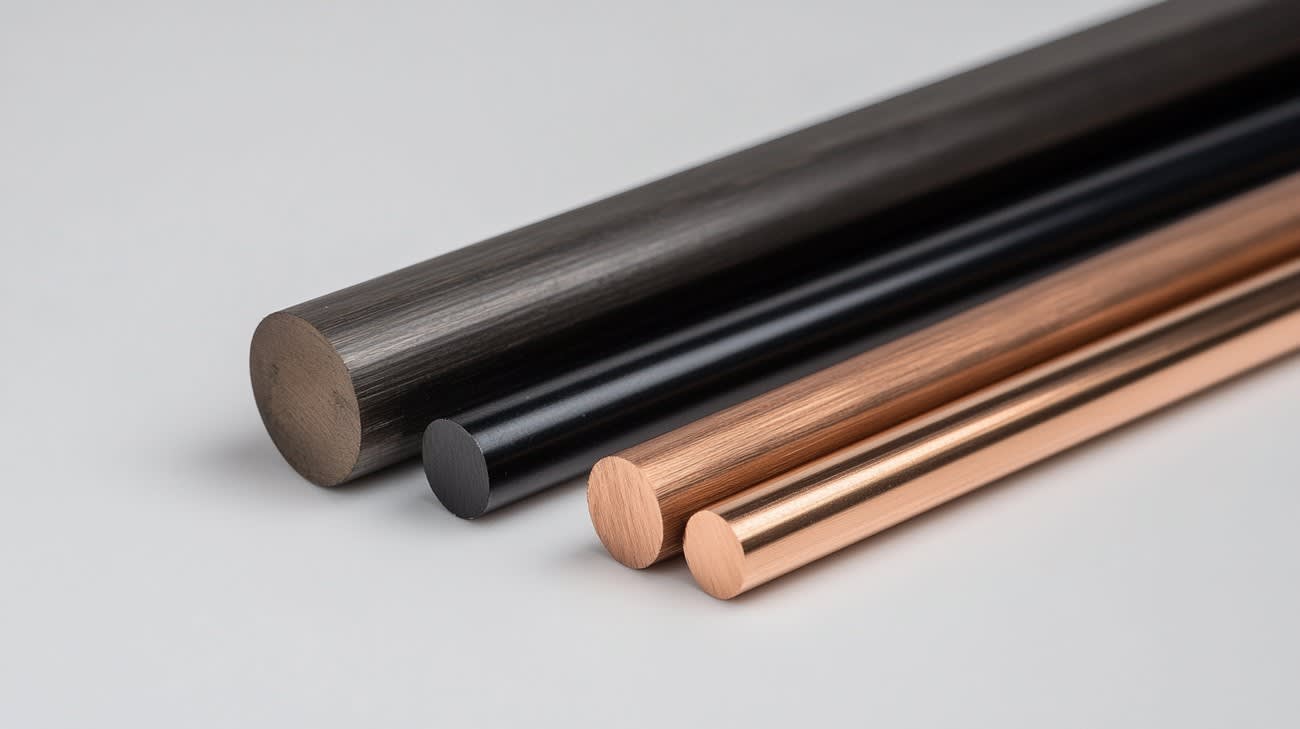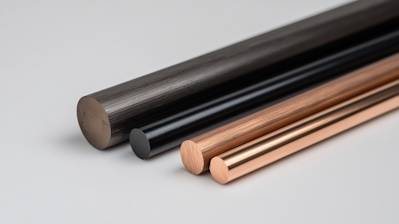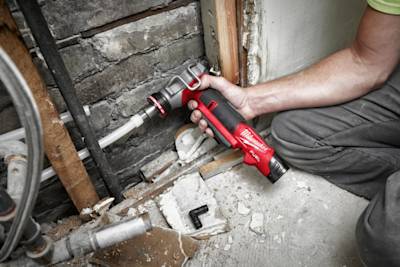Deciding on the best material for your plumbing setup is a critical decision for any homeowner or contractor. Over the years, the debate between Polyethylene (PEX) and Copper has been a popular topic in the plumbing industry. This guide aims to provide you with an in-depth understanding of PEX vs Copper to help you make an informed decision.
A Brief Overview of PEX and Copper
First, it's crucial to have a basic understanding of both materials. PEX is a type of plastic tubing manufactured from cross-linked polyethylene. It's used extensively for water supply applications.
Copper, on the other hand, has been a long-standing material choice for plumbing applications. It's utilized in multiple fields, including plumbing, electrical, and construction.
Composition And Quality: The Critical Differences
PEX Composition and Quality
PEX is a flexible, durable, and stable material that displays an excellent performance under hot and cold climates. It is manufactured in three different types:
- PEX-A: Known for its elasticity and thermal memory.
- PEX-B: Features superior strength but lower flexibility.
- PEX-C: Offers a balance between strength and flexibility but lacks thermal memory.
Copper Composition and Quality
Copper is a natural, environmentally friendly material recognized for its supreme durability. It's resistant to UV rays, making it ideal for outdoor applications. It's available in two types:
- Type M Copper: Least expensive but thinner.
- Type L Copper: More costly but thicker and stronger.
Installation Process: PEX versus Copper
PEX Installation
PEX's installation is generally considered easier and quicker due to its flexibility. PEX can be snaked into walls, reducing the need for holes and notches. It's less labor-intensive as PEX requires fewer connections and fittings.
The steps to install PEX include:
- Determine the amount of PEX required for your project.
- Cut the PEX tubing to the correct length.
- Insert the necessary fittings into the pipe.
- Use a crimp tool to secure the fitting.
Copper Installation
Copper pipes are rigid, meaning they require more labor and hardware to install. They are installed using a process known as soldering. Copper installation requires:
- Accurate measurement and cutting of pipes.
- Deburring of the pipe's interior and exterior.
- Applying flux on the fitting.
- Heating the joint and applying solder.
- Letting the joint cool naturally.
Cost Comparison: PEX vs Copper
When comparing costs, PEX generally comes out ahead. Its material costs less, and its installation requires fewer fittings and less labor. On the other hand, copper's material and installation cost tend to be higher.
Longevity and Durability
Both PEX and Copper pipes have excellent longevity.
PEX pipes are resistant to scale and Chlorine buildup, making them an ideal choice for diverse water conditions. They are also resistant to freeze breakage, making them a viable choice for colder regions.
Copper pipes have stood the test of time, displaying excellent longevity and durability. They resist corrosion and can withstand extreme heat, making them a great option for hot water distribution.
Environment and Health Impact
Copper is a 100% recyclable material, making it an environmentally friendly choice. It’s also bacteria-resistant and non-permeable, which makes it safe for drinking water.
PEX, on the other hand, is less environmentally friendly as it is not widely recyclable. There have also been debates about the potential for chemicals to leach from PEX into water. However, PEX has been certified as safe for drinking water by most standards.
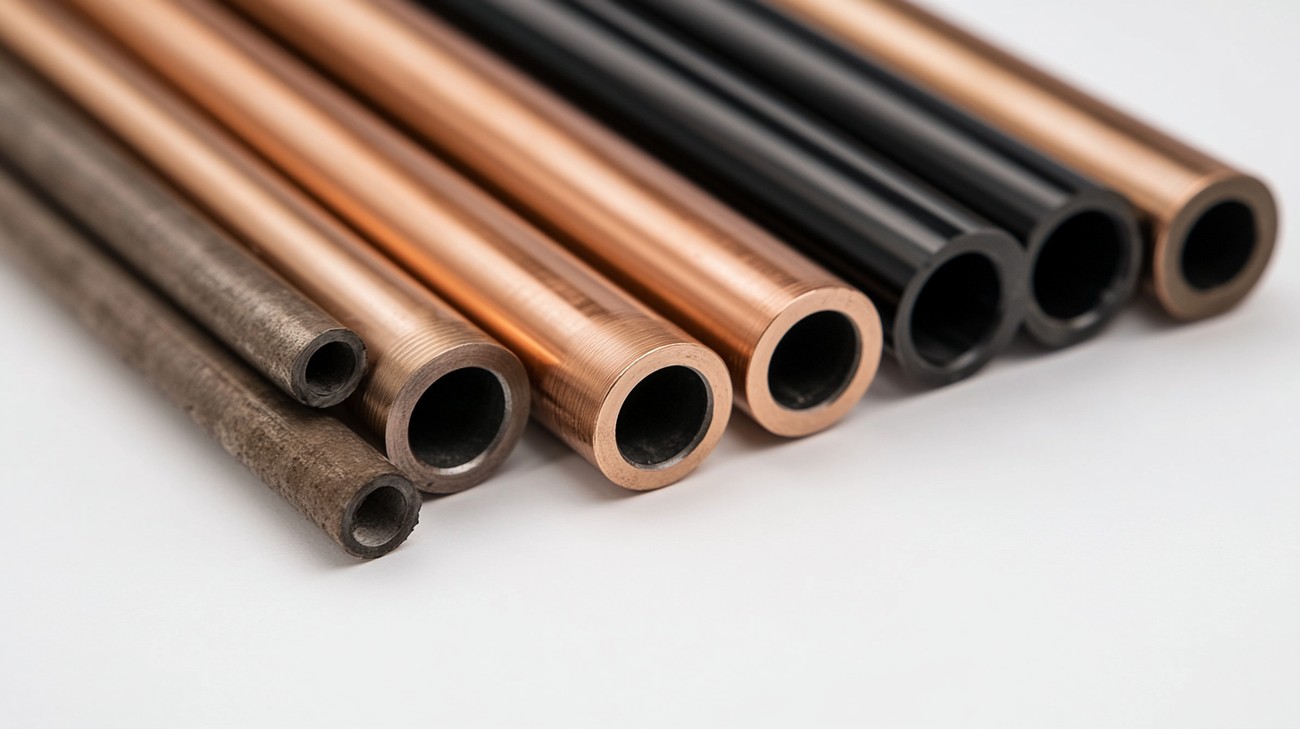
Frequently Asked Questions about Pex Vs Copper
Are there different types of PEX and copper piping?
Yes, both PEX and copper piping come in different types. With PEX, you may encounter PEX-A (expansion PEX), PEX-B (crimp PEX), and PEX-C (irradiated PEX). Meanwhile, copper pipes typically come in Type M (thin-walled), Type L (medium-walled), and Type K (thick-walled).
Is PEX piping more cost-effective than copper piping?
In terms of direct material cost, PEX piping is significantly less expensive than copper. The cost of PEX tends to be about one-third that of copper. This does not factor in labor costs, which may also be reduced due to the ease of installing PEX compared to copper.
How do PEX and copper piping compare in terms of durability?
Copper has an edge in terms of durability. If treated properly and in the correct conditions, copper piping can last up to 50 to 70 years. PEX, on the other hand, has a reported lifespan of 40 to 50 years. However, it's important to note that the durability can depend heavily on the conditions of your local water supply and the chemistry of the water.
Can both PEX and copper piping be used for both hot and cold water supply?
Yes, both PEX and copper can be used for hot and cold water supply. PEX has excellent resistance to both hot and cold temperatures. Copper can also handle both types of water, though hot water can accelerate corrosion in the pipes over time.
How easy is it to install PEX versus copper?
PEX is generally easier to install than copper. PEX's flexibility allows it to be maneuvered around corners without the need for elbow joints, making it a time and money saver. Copper, on the other hand, requires more skill and time due to its rigidity and the need for joints and soldering in the installation process.
Is PEX or copper more environmentally friendly?
Copper is generally considered more environmentally friendly than PEX. Copper is 100% recyclable and can be reused indefinitely. However, the process of mining and refining copper is energy-intensive and can be harmful to the environment. PEX, on the other hand, is not recyclable and can leach chemicals into the water. However, producing it consumes less energy than copper production.
How does repair and maintenance compare between PEX and copper?
Both PEX and copper have their own pros and cons when it comes to repair and maintenance. PEX's flexibility allows for relatively easy repairs. However, it can't be easily disassembled and reassembled, meaning sections may need to be cut out and replaced. Copper repairs generally involve more skill and time, but copper pipes can often be disassembled, cleaned, and re-soldered.
Are there any health concerns with using PEX or copper?
Both PEX and copper have potential health concerns. Copper can leach into your drinking water if the water's pH is too low, which can cause health issues over time. PEX piping, on the other hand, can potentially release chemicals into the water. This is heavily dependent on the specific PEX product and the quality of your local water supply. As a precaution, always ensure the products you choose are approved by your local health department.
Can new PEX pipes be used with existing copper pipes?
Yes, it is possible to join new PEX pipes with existing copper pipes. Special push-fit fittings, known as SharkBite, are one of the popular methods used to join PEX and copper pipes without the need for special tools or soldering.
How do PEX and copper deal with temperature changes and freezing?
PEX handles wide temperature changes and freezing better than copper. It can expand and contract without breaking, making it resistant to freezing damage. Copper, however, can burst if water inside the pipe freezes and expands.

Pros of PEX
Easy Installation
Flexibility
PEX plumbing, unlike traditional copper, is very flexible. This improves ease of installation as it requires lesser connections and can easily twist around corners without needing elbow fittings. This flexibility reduces the cost as less hardware is needed and reduces chances breaking or damaging during installation.
Light Weight
PEX is much lighter than copper. This makes it easier to transport and handle during installation, reducing labor costs significantly and aiding even in DIY projects.
Less Cutting
PEX comes in long rolls, which means fewer cuts are needed. This eliminates time spent measuring and cutting the pipes to correct lengths.
Cost-Effective
PEX is typically cheaper than copper piping. The cost of materials alone can be significantly less, to say nothing of the potential savings on labor costs due to its easy installation.
Better Water Pressure
PEX won't corrode or develop pinhole leaks like copper can, therefore PEX may preserve better water pressure over time.
Heat Resistance
PEX has excellent resistance to freezing temperatures and heat. This reduces potential issues from extreme weather and could also reduce energy loss, potentially leading to energy savings.
Cons of PEX
UV Sensitivity
PEX piping is sensitive to UV rays, which can cause it to degrade over time. Therefore, it's generally not suitable for outdoor applications, at least without some form of UV protection.
Limited Recycling Options
Though PEX is technically recyclable, it's more difficult and expensive to recycle than copper, perhaps limiting its eco-friendliness.
Cannot Be Used for Grounding
PEX also can't be used to ground electrical wiring, which can be an issue in some building or renovation projects.
Pros of Copper
Durability
Copper is highly durable and has a proven longevity. It is resistant to heat, UV light, and bacteria, and can last for several decades.
Recyclability
Copper is highly recyclable. This means that it has a lower environmental impact and possibly a higher resale value than PEX.
High Temperature Resistance
Copper has a higher melting point than PEX, making it the more suitable material for areas where exposure to high temperatures is a concern.
Use for Grounding
Copper piping can be used to ground electrical wiring, which can be a key consideration in some building or renovation projects.
Cons of Copper
Corrosion
Copper pipes can corrode over time, especially if the water contains certain contaminants. This can lead to leaks and a reduction in water quality.
Complicated Installation
Copper pipes require cutting and sweat-soldering, a process that takes significantly more time and skill than PEX piping installation.
Cost
Copper materials are significantly more expensive than PEX. Additionally, because of the labor-intensive installation process, labor costs are likely to be higher as well.
Reduced Water Pressure Over Time
As copper pipes age, they can develop pinhole leaks which can reduce the water pressure within the pipes. On the other hand, PEX piping generally maintains its water pressure well over time.

Myths and Misconceptions About PEX vs. Copper
Myth 1: PEX is Not as Durable as Copper
Misconception About Durability
A common myth about PEX (Cross-Linked Polyethylene) is that it's not as durable as copper. This is largely sprouted from the long history and credibility of copper piping in plumbing. However, PEX has been widely utilized across Europe for more than 30 years and is also gaining strides in popularity and reliability in North America. PEX's durability often depends on the quality of the material and proper installation. It can resist freeze-thaw cycles effectively and doesn't corrode or develop pinhole leaks, a problem usually associated with copper pipes.
Myth 2: PEX Can't Handle High Temperatures
Misconception About Heat Resistance
Some believe that PEX can't hold up to high temperatures like copper can. While it’s true that copper can support extremely high temperatures, PEX is also rated for hot water supply with impressive resistance to heat. Most PEX pipes can withstand temperatures up to 200°F (93.3°C), which is usually higher than any residential water temperature. Therefore, the heat resistance of PEX piping should not be an issue in most residential applications.
Myth 3: PEX is More Prone to Leaking
Misconception About Leak Potential
There's a common belief that PEX is more prone to leaks than copper. This myth may stem from a past when an early version of PEX, known as Polybutylene, had issues related to bursting and leaking after long-term use. Modern PEX, however, is fundamentally different from Polybutylene, and it is designed with superior performance and leak-free operation in mind. Further, since PEX uses fewer fittings and gives fewer opportunities for leaks to occur compared with copper, it can actually possess a lower risk of leaks if properly installed.
Myth 4: PEX Reduces Water Pressure
Misconception About Water Pressure
Another myth about PEX is that it greatly reduces water pressure compared to copper pipes. This is often based on misunderstandings about pipe size and material. While it's true that certain factors like pipe diameter and length can impact the overall water pressure, there's no evidence to suggest that PEX inherently reduces water pressure. In fact, PEX's flexibility can make it a more effective choice for maintaining consistent water pressure, especially in home renovations where new piping needs to navigate around existing structures.
Myth 5: PEX is More Expensive than Copper
Misconception About Costs
A common misconception is that PEX is more expensive than copper. While it's true that the material cost of PEX might be higher when calculated per foot, the overall costs associated with installation, repair, and replacement can actually make PEX a more economical choice in the long run. This is because PEX is easier and quicker to install, less prone to leaks and damages, and generally more efficient than traditional copper pipes.
Myth 6: PEX is Not Safe for Drinking Water
Misconception About Water Quality
Safety of the drinking water is often a top concern for homeowners. There's a myth that PEX plumbing may leach chemicals into drinking water and thus, is not safe. This is based on early concerns related to the manufacturing methods of PEX. However, modern PEX has undergone rigorous testing and has been certified by organizations like the National Sanitation Foundation (NSF). PEX is now considered quite safe. It's essential, though, to ensure that you're buying PEX that's been certified for potable (drinking) water use.
In conclusion, many common beliefs about PEX vs Copper are based more on misconceptions and outdated information than on current facts and research. Both types of piping have their benefits and drawbacks, but it's important to separate fact from fiction when making your choice. Believing these myths can lead to unnecessary concerns and might even cost you more in long-term expenses and lost efficiency. Remember to consult with a professional to make the best informed decision for your plumbing needs.
Summary
With a thorough analysis of PEX vs copper, it's clear that each has its own unique strengths and weaknesses. While PEX is cheaper and more flexible, making it easier to install, copper is more resistant to UV light and has a century-old track record proving its long-term durability. Individuals speculating on the best option for their home plumbing should consider factors such as installation, cost, durability, and the specific requirements of their project.
Considering the debate between PEX vs copper, it's important to remember that the decision largely depends on your unique situation. If versatility and cost-effectiveness are what you're after, PEX might be your best bet. But for those seeking longevity and sturdiness, and are willing to pay a little extra, copper calls the shots. Also, copper can withstand higher temperatures and is universally accepted, unlike PEX, which isn't allowed in some areas.
The final thing to remember when considering PEX vs copper is the matter of taste and personal preferences. Some homeowners may be more comfortable being traditional, going with copper, while others might value the ease of installation and flexibility that PEX offers. At the end of the day, both materials are capable of fulfilling their purpose — to supply your home with water. It's all about aligning your choice with your project needs and individual preference.
About KYPD Plumbing
KYPD Plumbing is your local, go-to plumbing solution in Lexington, KY. For over a decade, we've been tackling all types of plumbing issues for our friends and neighbors in the Bluegrass region. From simple drips and leaks to complex system installations, our experienced team can handle it all! We believe that top-notch service can be affordable and we pride ourselves on prompt, reliable, and trustworthy service. So, when plumbing troubles get in your way, remember, KYPD is just a call away!
Tags: pex, copper, plumbing,

